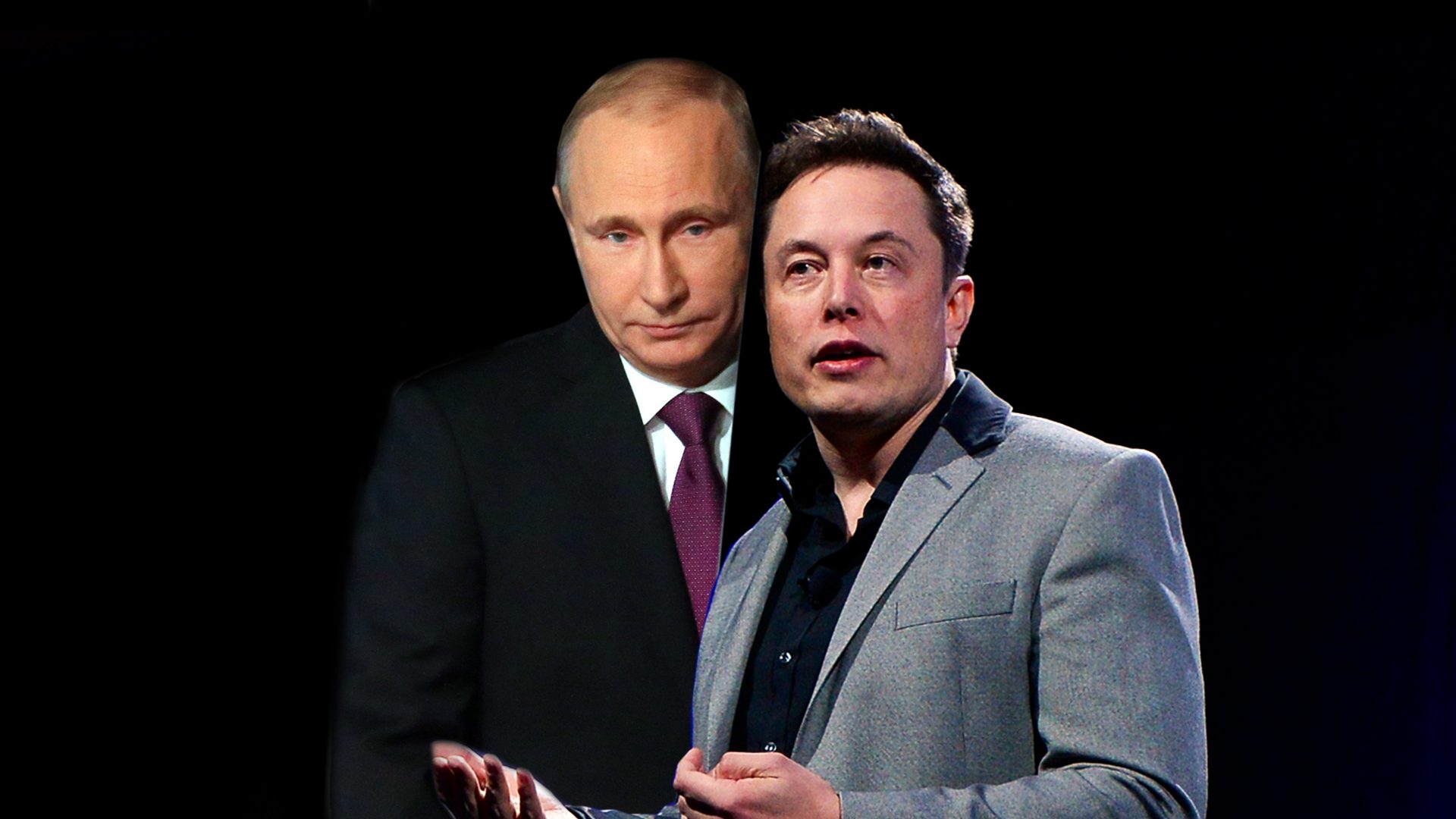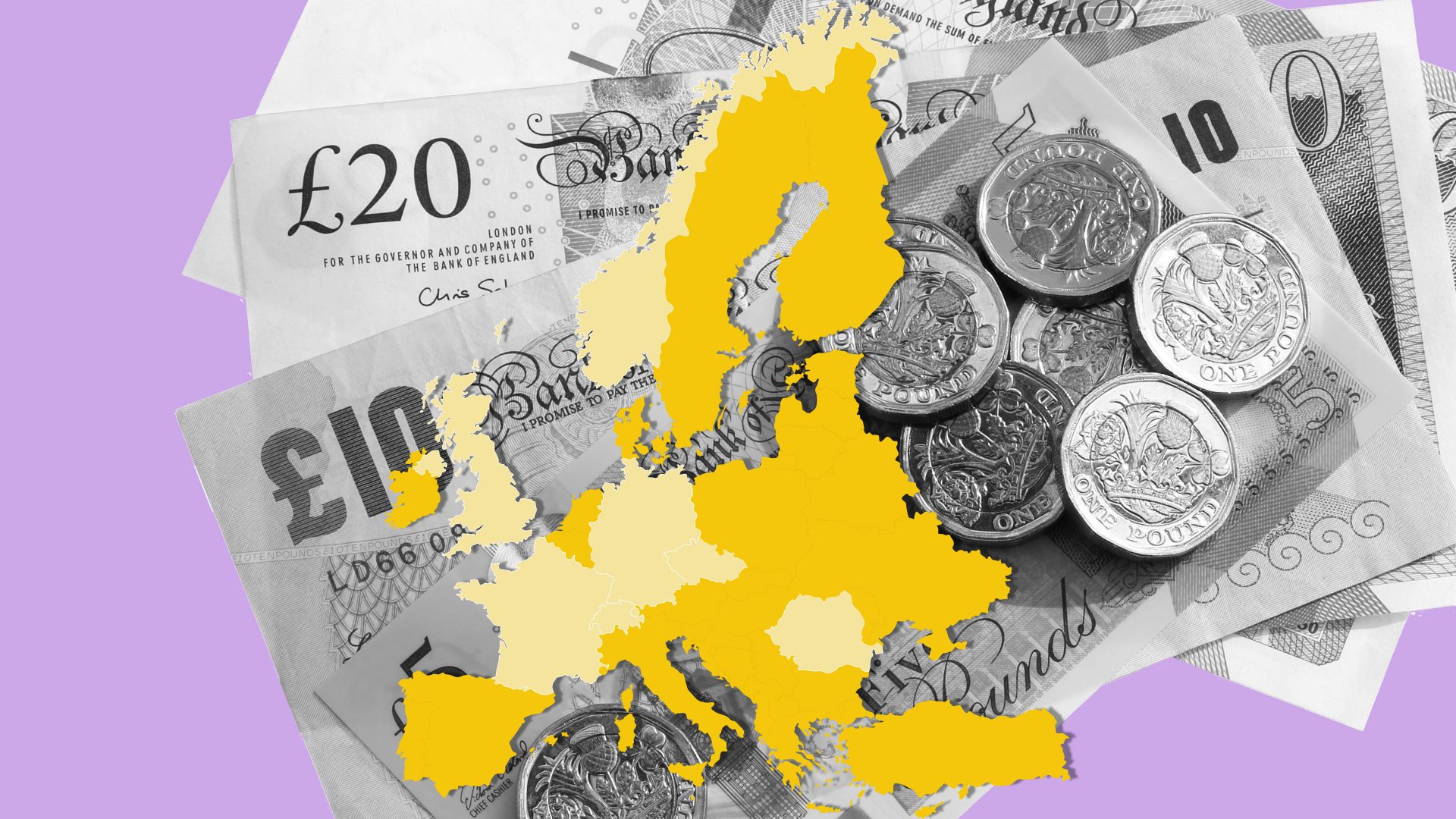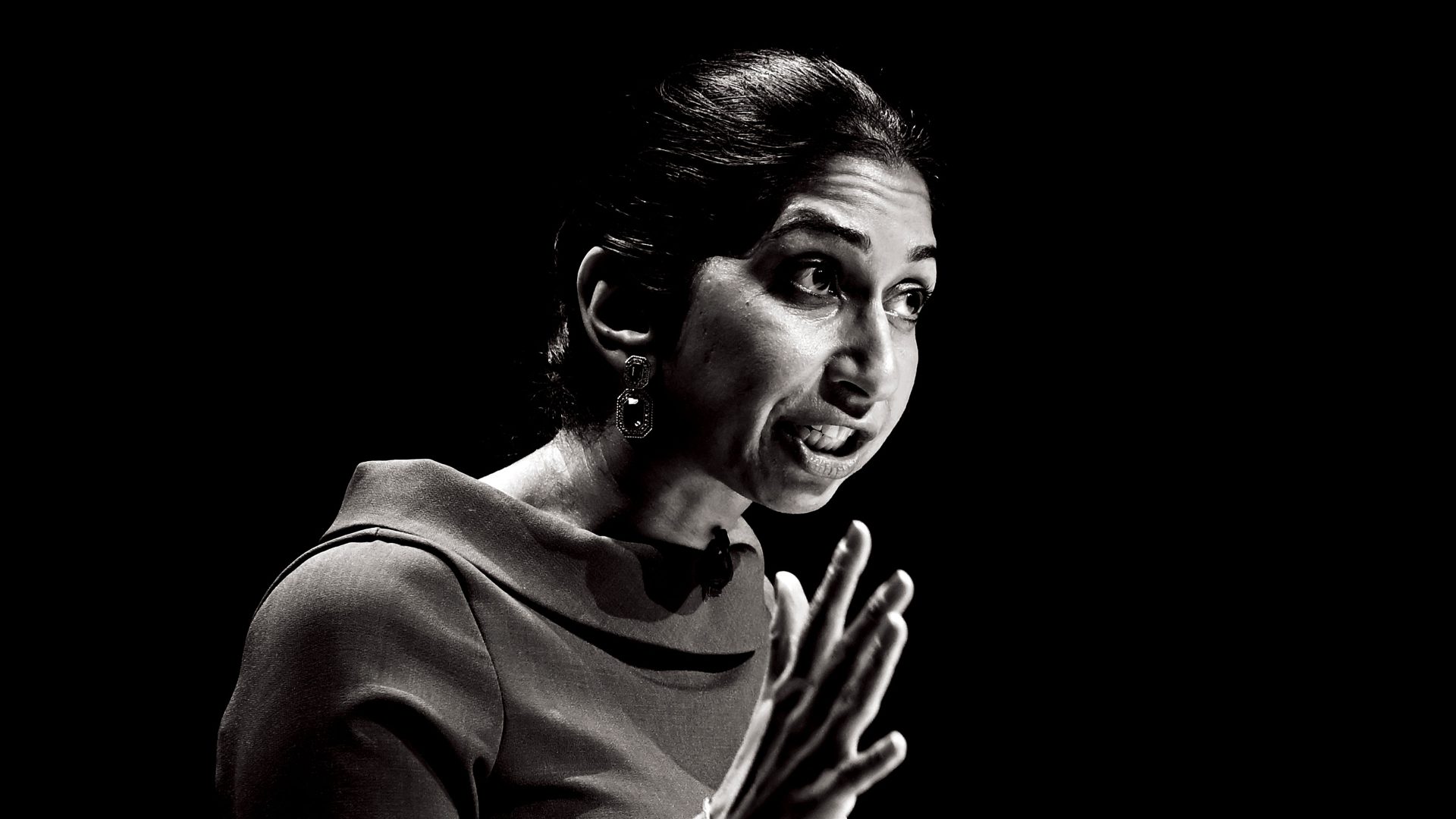As I write, Russian missiles are hitting critical infrastructure in Kyiv. The attack forms part of Vladimir Putin’s response to a Ukrainian attack on the Kerch bridge, built illegally by Russia to supply illegally annexed Crimea. The night before the Kyiv strike, Russian TV splashed the headline: “World frozen on the brink of nuclear Armageddon?”
We’re afraid. And we are meant to be. This phase of the crisis has triggered a new spate of calls to appease Putin, spearheaded by right wing voices warning of all-out nuclear war.
Billionaire tech bro Elon Musk told Ukrainians whose towns are occupied by Russian troops that, instead of fighting for their own liberation, they must wait for a “UN-administered” referendum to set them free. Ukraine, he said, must give up Crimea and guarantee its own neutrality.
Musk tweeted that the four provinces occupied by Russia “have Russian majorities and prefer Russia”. If we support the will of the people, he taunted Republican Senator Lindsey Graham, “we should, in any given conflict region, support the will of those who live there”.
It is, of course, entirely untrue. Russian-speaking majorities in two of the four provinces do not equate to a desire to support annexation by the Russian state – and even if it did, it would be illegal.
If supported by the US, Musk’s plan would signal the collapse of all commitment to a rules-based order, in which the territorial borders of existing states are sacrosanct. It would trample Ukraine’s right to defend its own people. What a “UN-supervised referendum” would look like, with Putin’s secret police going door to door, doesn’t bear thinking about.
If it were just Musk, this would simply be a laughable example of what happens when engineers try to solve political problems. But he’s not the only one urging appeasement.
Dominic Cummings, one-time adviser to Boris Johnson, told readers of his newsletter that Ukraine was of “trivial importance to the world” and that the war in eastern Ukraine “resembles a civil war, with both sides speaking Russian”. He warned that Britain’s stated desire for Russia to be forced out of Crimea, which it seized illegally in 2014, was a “ticket to nuclear war”.
Donald Trump has also waded in, telling a rally last week: “We must demand the immediate negotiation of a peaceful end to the war in Ukraine, or we will end up in world war three and there will be nothing left of our planet.”
The arguments of these influential right wingers rest on two strategic concerns. First, that Putin might attack Ukraine with a tactical nuclear weapon, forcing the US to retaliate and risking escalation into strategic conflict. Second, that the humiliations currently being inflicted on Russia might cause the Putin regime to collapse, with unpredictable geopolitical consequences.
Both risks are real. Though there no indications that Putin is preparing a nuclear strike, before the Kerch bridge incident he had begun to signal his desire to “de-escalate”: first, through releasing 200 Ukrainian POWs, second, through sham annexations of four Ukrainian provinces; third, by sabotaging the Nordstream gas pipeline; fourth, by reiterating his nuclear threats; and fifth, by expending a large number of long-range missiles on a revenge attack.
In all Russian wargames, “de-escalation” involves using a tactical nuclear weapon to shock the western adversary into negotiation, while maintaining control over territory already captured. As I’ve argued here before, Nato and the US can minimise this risk through presenting a strong, deterrent message: that if Putin crossed the nuclear threshold, his forces in Ukraine and the Black Sea would be hit with a major conventional attack. By renouncing its own capability to use nuclear weapons in response, the West could prevent escalation into strategic conflict. Russia, meanwhile, would be friendless and doomed to economic collapse.
The risk of Putin’s downfall is also real. There are obvious manoeuvres going on among rivals within the Russian elite: the sacking of top generals, the staging of fake protests by Russian soldiers (alongside real ones) to put pressure on Putin; open ridicule of the army’s performance by Russian nationalist bloggers.
But it wasn’t the West that forced Putin into this predicament: he did this to himself. We’ve always understood that Russia’s possession of nuclear weapons does not oblige us, or our allies, to surrender to its conventional threats and aggressions. Likewise with Putin’s capacity for selfdestruction. Though it is a danger, it cannot be the deciding factor in the West’s support for Ukraine.
What we can do is to express our support for a strong, unified and sovereign Russia within the international system. Russian nationalist paranoia feeds on fears that the US wants to see the country broken up, or returned to economic vassal status as in the 1990s. We must disavow such aims.
If Putin survives, I think it’s likely that he will cut his losses and offer exactly the kind of off-ramp touted by Musk, Cummings and Trump. “Freeze the conflict or I nuke Ukraine” is not a message the global community should accept. So long as Ukraine’s government rejects it, we should reject it.
We should go on arming, funding and training the Ukrainian military so it can liberate more people. The missile attacks on Kyiv show why the West should now also arm Ukraine with state-of-the-art missile defence systems.
We should tighten the screws on Russia’s economy until its capacity to wage war begins to falter. The Finnish PM, Sanna Marin, put it best: the off-ramp for Putin is to leave Ukraine.




